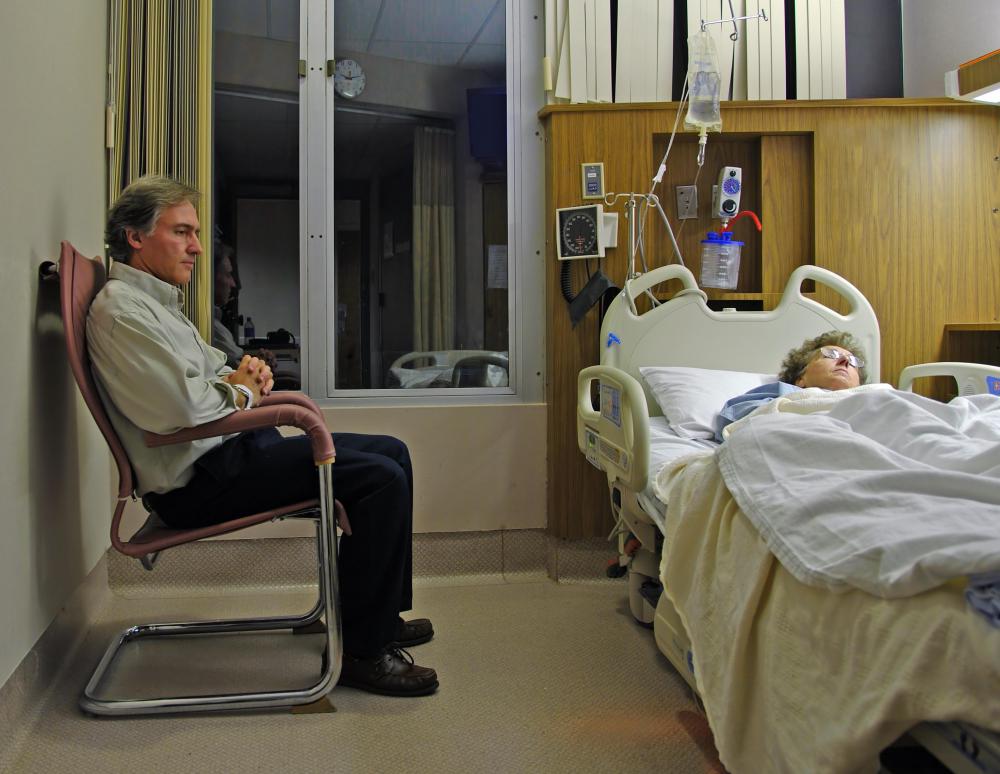At TheHealthBoard, we're committed to delivering accurate, trustworthy information. Our expert-authored content is rigorously fact-checked and sourced from credible authorities. Discover how we uphold the highest standards in providing you with reliable knowledge.
What are Considered Dangerous Blood Sugar Levels?
If an individual's sustained blood sugar falls below 55 milligrams per deciliter (mg/dL) or measures higher than 180mg/dL, he is considered to have dangerous blood sugar levels. Normal blood sugar levels typically range from 82 to 110mg/dL, but these tend to fluctuate when an individual eats or forgets to eat. If at any point an individual's blood sugar measures below or above the 55 to 180mg/dL thresholds, however, he might begin experiencing the effects of abnormal blood levels, including dizziness, fatigue, and weakness. If these dangerous levels are sustained over a period of time, there is an increased possibility of serious medical issues.
Blood sugar levels are measured in a variety of ways, but the most common test is to introduce glucose-indicating enzymes, such as hexokinase, into a blood sample. The changes are then tracked and measured. Should the sample indicate blood sugar levels that are extremely low or high, further testing may be needed to confirm the reading. Depending on the final results, the patient may be diagnosed with either hypoglycemia or hyperglycemia.

Hypoglycemia, in which an individual's blood sugar levels consistently measure below 60mg/dL, often causes fatigue, nausea, and an unhealthy pallor. Without enough sugar in the blood to fuel metabolic processes, important cells and tissue can suffer serious damage. Individuals with dangerously low blood sugar levels can experience significant nerve damage, with the more severe cases resulting in comas or death.

When an individual has dangerously high blood sugar levels, he develops hyperglycemia. Unlike in hypoglycemia, the effects of hyperglycemia typically go unnoticed until the condition worsens to a significant degree. In many cases, patients experience the symptoms when their blood sugar measures 270mg/dL or more. With these levels, individuals report tingling feelings in their feet, dry mouth, and slower wound healing. If left unchecked, hyperglycemia can lead to diabetes mellitus, cardiac arrhythmia, and other serious medical conditions.

Blood sugar levels can often be controlled through lifestyle changes, chief among which is a change in diet. In the case of hypoglycemia, patients can address their need for blood sugar by eating more fruit or having a dextrose drip. In the case of hyperglycemia, any unnecessary sugars are cut from the diet altogether. Dietary management is often complemented with regular exercise to promote efficient use of blood sugar. If the case is severe enough, these changes can be lifelong.
AS FEATURED ON:
AS FEATURED ON:



















Discussion Comments
At my husbands last physical his fasting blood sugar levels were high. They told him he was at the pre-diabetic level, and needed to work on lowering his blood sugar.
The best way for him to do this is to lose some weight and start a regular exercise program. Neither of these things have been easy for him.
He has put off going back to the doctor because he has not lost any weight. I know if he can lose some weight and keep it off, he has a much better chance of having healthy blood sugar levels.
@jholcomb - I had a friend with diabetes, and the impression I got was that they take insulin based on the amount of carbs they eat. But they can take too much insulin, and then that drops their blood sugar further than they meant it to. (This might only apply to type 1 diabetics and/or to insulin-dependent diabetics.)
But I'm not an expert. Maybe someone out there can help us out.
I worked with a lady who was a serious type 1 diabetic, and so was her son. They were responsible and often checked their blood glucose levels. She told me this funny story about a time they were driving home from the grocery store. She felt funny; she thought about just driving on home, but she knew it was important to set a good example for her son.
So she pulled over to the side of the road and checked her blood sugar level. It was low. Her son checked his and it was also low, so they broke into the groceries and sat in the car by the side of the road, eating honey buns and popsicles! They must have been a sight to see.
But here's what I never understood about the story - I get why diabetics would have *high* blood sugar, because they can't process sugar correctly. But why would they wind up with low sugar?
Post your comments